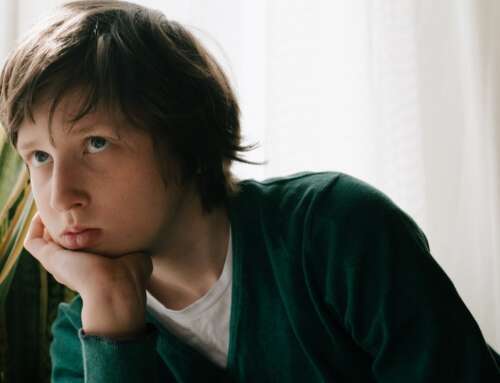Of course we all know that relationships are central to teaching, and of course we all know that good relationships are pre-cursor to good teaching.
But I wonder if we can clarify what a good Teacher/Student relationship looks like?
In my experience good relationships in the classroom don’t depend on likeability as such. By that I mean we shouldn’t be aiming to be friends with students.
Rather a good relationship is built on 3 key things.
- Respect
Respect must be a two-way street. No you shouldn’t expect students to respect you just because you’re a teacher. No-one has EVER been able to convince as to why this should be the case. Respect is something that takes time to be built and nurtured. Calling kids by their first name (not a nickname or surname) is a good starting point.
- Trust
Let’s be honest, schools don’t trust kids. That’s why schools ban Facebook. That’s why unions panic if student feedback is suggested as a good way of measuring teacher performance. But if we don’t trust the kids – and they know this – why would they trust us? How many kids think that a teacher’s “out to get them?”
- Show that you care.
Studies have shown time and again, the number one thing kids need from a teacher is the sense that they care about how they’re doing; both socially and academically. They feel that the teacher wants what’s best for them, and the way this is conveyed with respect and trust.
I wonder what would happen if every schools’ motto was “We respect, trust and care about students.”
Author: Dan Haesler, he is a teacher, consultant, and speaker at the Mental Health & Wellbeing of Young People seminars He writes for the Sydney Morning Herald and blogs at http://danhaesler.com/ and tweets at @danhaesler







After reading this article, wanting to leave a message, deciding not to, then when still thinking about it a half hour later I have returned to comment. I found this article lacking depth and somewhat offensive. As a teacher who has worked for 10 years in development education and low SES schools, I am regularly shown disrespect including being sworn at (by students and parents) ignored by students and parents who refuse to pick up the phone when I call. I love my job, respect every one of my students and we have a great relationship. Most of this behaviour is what they have learnt from home and their community. However I would like to point out that respect and trust goes both ways. This article is printed in a forum for young people and places all the emphasis of a good relationship on the teacher. Yes, the teacher is one who is paid to be in the relationship, however students (teenagers in particular) need to recognise that if they want respect they also need to show it. Teachers work extremely hard in a largely thankless job (as the author would know as a teacher) and more often these days, students ‘expect’ respect from the teacher, no different to the author’s comment that teachers ‘expect’ respect because they are the teacher (which is a very old fashioned concept and one that I do not see very often these days anyway). To mention facebook in the issue of trust is simplistic and inaccurate, as blocking access to facebook is not an issue of trust, but rather one of legalities and supervision in a society where parents are quick to blame schools for any misgivings or online bullying (as an example) against their children. The parents do not accept responsibility for their childs negative actions (or morals and values), but prefer to blame, threaten or actually sue the school. I opened the article with great expectation and would have enjoyed reading a much more balanced article which reflects ‘generation next’ and the increasingly complex mediums of communication within society and addressed both students and teachers as equal partners in developing the relationship.
Dear Emma
Thankyou for taking the time and effort to write your well-considered and important comment. It contains many pertinent points that other professionals have also raised with me over the years. I will ask Dan to respond.
Please take note however that this forum is directed at professionals and parents who are working with young people. While we do get some visits to this websit from young people, the vast majority are adults.
Ramesh
Emma,
Thanks for your comment. I take on board your point regarding the lack of depth, but that is the point of the blogs I write.
They are designed to act as conversation starters either online or in staffrooms… a kind of “What do you think about this?”
With regard to your particular points – and these are only my opinions…
I concur that trust goes both ways, but I’m writing for teachers – and writing about what THEY can control. We can do little regarding kids’ homelife. Having worked in one of the poorest areas of the UK I am well versed in the issues that teachers in these schools face. However, we must remember that for the a lot of these kids WE THE TEACHERS are the most consistent adult in their lives. As such regardless of what is thrown at us we must role model respect. At the risk of sounding condescending (and I really don’t mean to) I encourage teachers to view these challenges as professional ones, not personal ones.
With regard to Facebook I’m afraid we won’t see eye-to-eye on this one. Although I agree with the reasons that you give as to why it’s not in schools, but I would contend that each of these reasons come down to trust.
How can we criticise kids when they stuff up on social media if parents don’t understand it and schools can’t address it?
I’m not advocating that every school extinguish its firewall tomorrow, but I do think they need to think carefully how to integrate the teaching of online identity so it is seen as a positive rather than something to be feared.
As far as my “old-fashioned” view on the teacher who “expects respect” regardless and shows little to the kids – I’m afraid that I could wager good money that I’d find at least one in every second school (if not more) I visited in 2012.
I’ve heard whole staff refer to some kids who are at the lower end of the academic bell curve as “dross”. I’ve spoken with principals who refer to kids who aren’t that academically smart as being “sh*t”.
However, having said that I do know that the Gen Next audience are a select group, who genuinely care about the kids above all else.
Which brings me back to my first point – I’d hope that Gen Nexters take my one-liners and drop them into difficult staff meetings to get the focus back as to why we’re all there in the first place. The kids.
If you do want to read some of my deeper stuff, there’s plenty to be going on with at http://danhaesler.com/read
Thanks again, hopefully we can have a chat at one of the Gen next seminars this year.
Dan H
The old adage that, “they don’t care what you know until they know you care,” will always hold true. First and foremost students are human beings. Sadly there are teachers out there who bully kids and are extremely disrespectful. As a high school teacher I have watched students suffer under these teachers. It was not until I had children myself, that I saw the damage that can occur when teachers behave like this in primary schools. In high schools students often “pay back” teachers who do not show respect. In primary schools parents can and do vote with their feet. To all of those great teachers out there – remember that you are doing a terrific job. When you sometimes wonder why you do this job, it’s because you care. Students and parents respect you for this even if they don’t always tell you this. Keep on keeping on 🙂
This is so very true. Students blossom when given trust, respect and care, especially if they are given the understanding by their teachers and schools that they are human beings allowed to make mistakes and learn from them.
Helen & Deborah,
Thanks for your comments, although it’s shame that it’s even a talking point isn’t it?
Cheers,
Dan
We all know that relationships are the key factor to happiness and trust and respect are key factors. Why do we expect our kids to have the knowledge and skills that us 40 plus are still working on.
Relationships are a fundamental part of learning. If we as teachers take our ego out of the teaching equation we open a window to a fresh style of interaction that is often not visible in the competitive ‘must do whatever it takes’ world our students see through the media.In other words we demonstrate how “respect, trust and care” looks and feels.
The key is recognising our understanding of respect, trust and care may be different to theirs. So, as is the case in any teaching / learning situation, we need to start where they are, give them a look at where they are headed, and then support them on their journey to get there.